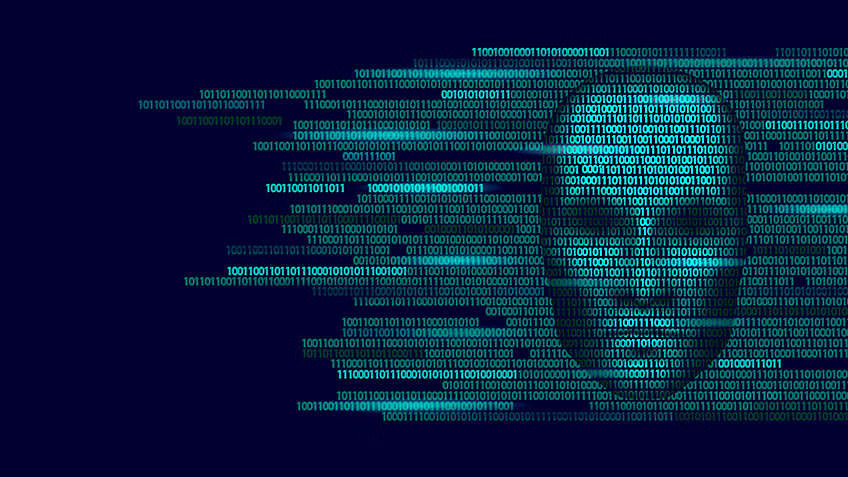In the ever-evolving landscape of technology, cybersecurity has emerged as a critical area of focus. With the increasing prevalence of digital platforms, the need for robust security measures has never been more paramount. This is where Artificial Intelligence (AI) offers innovative solutions to tackle complex cybersecurity challenges. AI in cybersecurity represents a groundbreaking shift in protecting digital assets, leveraging machine learning and intelligent algorithms to anticipate, detect, and neutralize threats with unprecedented efficiency.
While AI provides increased cybersecurity automation, there is a huge demand for specialists who can make it work effectively. Online cybersecurity training can help professionals gain the required skills to meet this industry demand.
How Does AI Apply to Cybersecurity?
AI applies to cybersecurity through its ability to process vast amounts of data at incredible speeds. Unlike traditional security measures that rely heavily on predefined rules and human intervention, AI systems learn from data patterns to identify anomalies that could signify potential threats. These AI systems can adapt to new, previously unseen attacks, making them invaluable for real-time threat detection and response. AI cybersecurity tools utilize machine learning, natural language processing, and other AI technologies to automate complex processes, from monitoring network traffic to analyzing the behavior of applications for signs of malicious activity.
Also Read: Best Practices for Cybersecurity
Why Is AI Cybersecurity Important?
The importance of AI in cybersecurity cannot be overstated. As cyber threats grow in sophistication, traditional security tools struggle to keep up. AI’s proactive approach to threat detection enables organizations to stay one step ahead of attackers. It enhances threat detection accuracy, reduces false positives, and accelerates response times, minimizing potential damage. Moreover, AI can handle the scale and complexity of modern cyber environments, ensuring comprehensive protection across an organization’s digital footprint.
Skills Required to Implement AI in Cybersecurity
Implementing AI in cybersecurity requires unique skills that blend cybersecurity knowledge with AI and machine learning expertise. Professionals in this field need a solid understanding of various AI technologies and their application in cybersecurity. Skills in data science, including data preprocessing and analysis, are crucial for designing effective AI models. Additionally, knowledge of programming languages such as Python and an understanding of neural networks and algorithms is essential. Cybersecurity professionals must also be adept at identifying potential threats and vulnerabilities to train AI systems effectively.
Key Factors to Consider When Implementing AI in Cybersecurity
When integrating cybersecurity and AI strategies, several key factors must be considered:
- Data Quality: The effectiveness of AI models depends on the data quality used for training. High-quality, relevant data is essential for accurate threat detection.
- Transparency and Explainability: AI systems should be transparent and their decisions explainable to ensure trust and compliance with regulations.
- Privacy Concerns: Implementing AI must not compromise data privacy. Organizations must adhere to data protection laws and ensure the ethical use of AI.
- Scalability: AI systems must be scalable to adapt to the growing and changing needs of an organization’s cybersecurity framework.
- Continuous Learning: Cyber threats constantly evolve, necessitating continuous updates and learning for AI models to remain effective.
Also Read: How To Get Into Cybersecurity? A Complete Guide
Uses of AI in Cybersecurity
AI finds numerous uses in cybersecurity, including but not limited to:
- Anomaly Detection: Identifying unusual patterns that may indicate a security breach.
- Phishing Detection: Spotting phishing attempts by analyzing the content of emails and web pages.
- Malware Detection: Using machine learning models to recognize malware signatures and behaviors.
- Network Security: Monitoring network traffic in real time to detect and mitigate potential threats.
Applications of Artificial Intelligence for Cybersecurity
Artificial intelligence powers various cybersecurity applications, such as:
- Security Information and Event Management (SIEM): Enhancing traditional SIEM tools with AI to improve threat detection and response.
- Identity and Access Management (IAM): Using AI to analyze user behavior and detect anomalies in access patterns.
- Threat Intelligence: Leveraging AI to gather and analyze data from multiple sources, providing actionable insights into potential threats.
Benefits of AI in Cybersecurity
The benefits of integrating AI into cybersecurity efforts are vast, including:
- Enhanced Efficiency: Automating routine tasks frees up human resources for more complex security issues.
- Improved Accuracy: AI reduces false positives, ensuring security teams focus on genuine threats.
- Proactive Threat Detection: AI’s predictive capabilities allow organizations to identify and mitigate threats before they cause harm.
- Scalability: AI can effortlessly scale to protect against increasing cyber threats across diverse digital environments.
Risks of AI in Cybersecurity
While AI offers significant advantages, it also presents certain risks:
- Dependence on Data: AI’s effectiveness is directly tied to the quality of the data it is trained on. Inaccurate or biased data can lead to flawed decision-making.
- Security of AI Systems: AI systems themselves can become targets for cyberattacks, potentially being manipulated or compromised.
- Overreliance: Excessive dependence on AI could lead to a skills gap in the cybersecurity workforce, reducing the ability to respond to AI-specific threats.
Also Read: Cybersecurity Job Description: A Complete Guide
Future of AI for Cybersecurity
The future of AI in cybersecurity is poised for exponential growth and innovation. As cyber threats evolve in complexity and scale, AI will become increasingly integral to cybersecurity strategies. We can expect to see advancements in AI algorithms that improve their ability to learn from smaller datasets, adapt to new threats more quickly, and operate with greater autonomy. Additionally, integrating AI with other emerging technologies, such as blockchain for secure data management and quantum computing for enhanced encryption, will further bolster cybersecurity defenses.
Developing AI systems capable of unsupervised learning will mark a significant milestone in cybersecurity. These systems will detect known threats and anticipate new forms of attacks, adapting their defense mechanisms in real time. The synergy between AI and human expertise will also evolve, with AI taking on a more collaborative role, offering insights and recommendations to human security analysts.
Moreover, ethical and regulatory considerations surrounding cybersecurity and AI will become increasingly important. As AI systems become more autonomous, ensuring they operate within ethical boundaries and comply with global data protection regulations will be crucial. The cybersecurity community will need to establish robust frameworks for the responsible use of AI, ensuring transparency, accountability, and privacy protection.
Mixing Cybersecurity and AI with the Proper Skills
AI in cybersecurity represents a frontier of immense potential and challenges. Its ability to process and analyze vast amounts of data in real time offers a proactive approach to threat detection and prevention, significantly enhancing the security posture of organizations. However, the successful implementation of AI in cybersecurity requires a careful balance of technology, skills, and ethical considerations.
As we look to the future, AI’s role in cybersecurity will undoubtedly expand, becoming an indispensable ally in the fight against cyber threats. By embracing AI, certified cybersecurity professionals can unlock new efficiency, accuracy, and innovation levels. Yet, the journey towards AI-powered cybersecurity is collaborative, involving the ongoing development of technologies, skills, and ethical guidelines. With these efforts, the promise of a more secure digital world, safeguarded by AI’s intelligent and ethical application, is within reach.
In conclusion, AI cybersecurity is not just a technological advancement but a paradigm shift in understanding, approaching, and mitigating cyber threats. As we navigate this exciting and challenging landscape, the fusion of cybersecurity and AI offers a beacon of hope, heralding a new era of digital resilience and intelligence.
You might also like to read:
How to Build and Implement Cybersecurity Skills
How to Become a Cybersecurity Engineer? A Complete Guide
How to Become an Ethical Hacker: A Complete Guide






